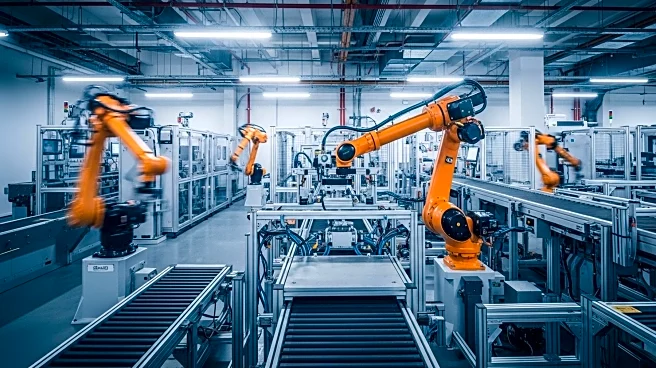What's Happening?
China's manufacturing sector experienced a slight improvement in August, with the Purchasing Managers' Index (PMI) rising to 49.4 from 49.3 in July, according to the National Bureau of Statistics. Despite this uptick, the PMI remains below 50, indicating a continued contraction for the fifth consecutive month. The improvement comes as China and the United States engage in trade discussions, with a truce on reciprocal duties extended to November 10. The manufacturing sector has faced challenges such as severe weather conditions and a debt crisis in the property sector, impacting economic recovery efforts post-pandemic.
Why It's Important?
The ongoing contraction in China's manufacturing sector highlights the challenges faced by the global economy, particularly in export-dependent countries. The trade discussions between China and the United States are crucial, as they could influence global trade dynamics and economic stability. A resolution could potentially ease tensions and improve economic conditions for both nations. The manufacturing sector's performance is a key indicator of economic health, affecting global supply chains and international trade relations.
What's Next?
As China and the United States continue their trade negotiations, the outcome could significantly impact global economic conditions. A successful agreement may lead to improved trade relations and economic growth, while failure to reach a consensus could exacerbate existing economic challenges. Stakeholders, including businesses and policymakers, will closely monitor these developments, as they could influence future economic strategies and international trade policies.









